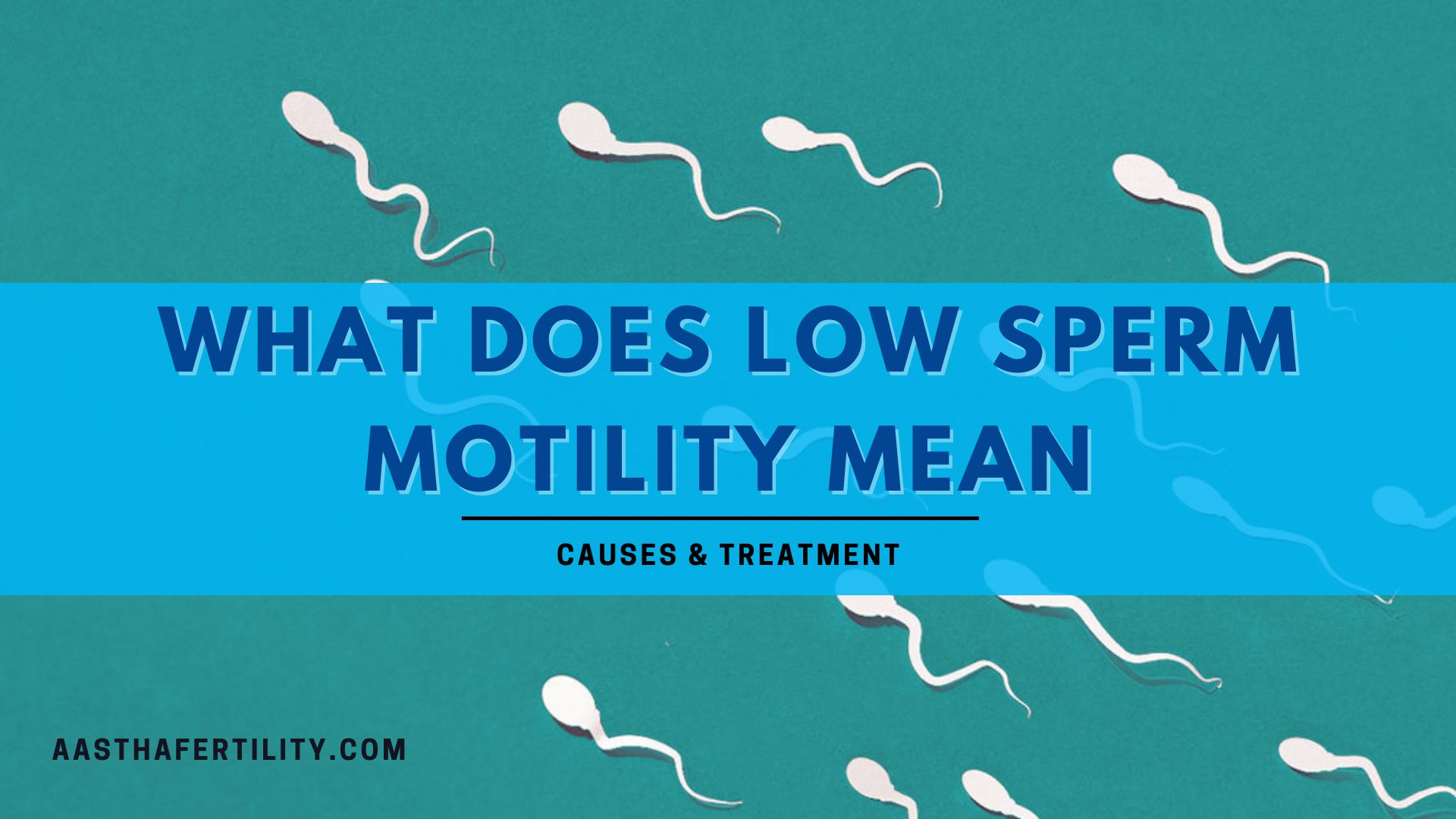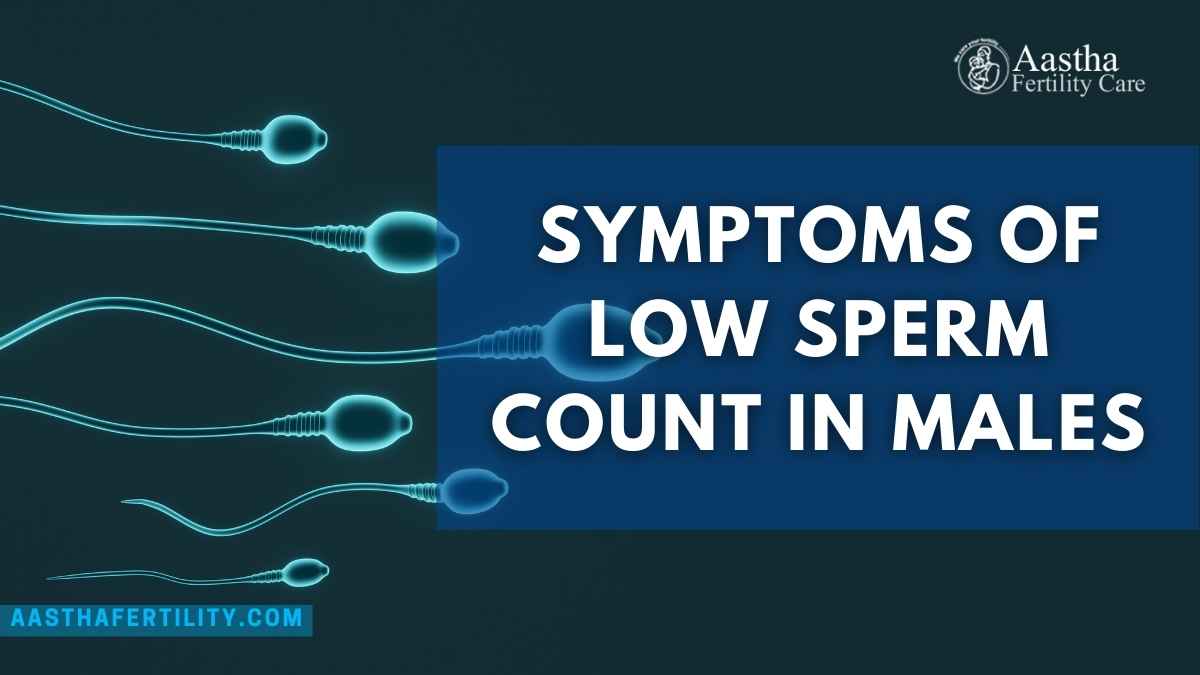Table of Contents
ToggleIn vitro fertilization (IVF) is a process in which eggs are fertilized with sperm outside the body. Sperm plays a crucial role in this process, as fertilization must occur. Low sperm count, also known as oligospermia, is a condition in which the number of sperm in a man’s semen is below normal.
Sperms, furthermore, play a significant role in the IVF fertilization process as they are placed with an egg in the laboratory dish, and the fertilized egg is then inserted into the uterus. Therefore, at least 10×10(6) ml/spermatozoa, out of which 15% have progressive motility, and 30% are motile, is the requirement of insemination therapy of IVF.
This is, however, just an overview, and there’s a lot more to consider when talking about minimum sperm count for IVF. If you’re planning for IVF and looking for the details of the minimum sperm count required for IVF, this blog by our fertility experts will help you with the details.
Our experts at Aastha fertility have expertise in all male infertility and female infertility treatments, own 7+ years of experience, and are known for delivering the highest success rates for ART treatments in India.
So, if you’re struggling with any issues in getting pregnant or want to go for a fertility check-up, Contact Us for the services.
What is the Minimum Sperm Count Required for IVF?
The minimum sperm count required for IVF is usually around 5 million sperm per milliliter of semen. However, this can vary depending on the clinic and the patient’s specific circumstances. However, it’s worth noting that a sperm count of 5 million per milliliter or higher does not necessarily indicate a healthy sperm count.
A healthy sperm count is typically considered to be at least 15 million sperm per milliliter, according to the World Health Organization (WHO) standards. A sperm count below 15 million per milliliter is considered low and can make it more difficult to achieve pregnancy naturally or through IVF. Other sperm parameters, such as motility (movement) and morphology (shape), are also essential when evaluating sperm health.
Also Read: What Does Low Sperm Motility Mean
How Can Low Sperm Count Affect IVF Procedure?
Low sperm count can have different impacts on different procedures. Mentioned below are some of them:
Effect of Fertilization: Low sperm count can affect the fertilization process during in-vitro fertilization (IVF) by decreasing the number of sperm available to fertilize the egg. This can lead to a lower rate of successful fertilization and a higher chance of needing to use additional sperm through intracytoplasmic sperm injection (ICSI).
Effect on Embryo Development: Low sperm count can also affect embryo development during IVF. The lower number of sperm available for fertilization may lead to a lower rate of healthy and viable embryos for transfer to the uterus.
Effect on Implantation and Pregnancy rates: Low sperm count can also affect implantation and pregnancy rates during IVF. The fewer viable embryos that result from low sperm count can lead to fewer embryos available for transfer, decreasing the chance of a successful pregnancy.
Effect on Live Birth Rates: Low sperm count can also affect birth rates during IVF. The lower number of viable embryos and the decreased chance of successful implantation and pregnancy can contribute to a lower live birth rate for couples undergoing IVF with low sperm count.
Due to this problem, many couples opt for Intracytoplasmic Semen Injection (ICSI). Even in the case of ICSI, if the sperm count is low, the involvement of a sperm donor will be necessary. If you doubt that you may be suffering from a low sperm count, you must seek medical treatment as possible.
Causes of Low Sperm Count
Low sperm count, also known as oligospermia, can have various causes ranging from genetics to surroundings. Some of the major factors affecting low sperm count include:
Genetic Factors
Some congenital conditions, such as Klinefelter Syndrome, a chromosomal disorder, can cause low sperm count. Genetic mutations in specific genes important for sperm development can also lead to low sperm count.
Environmental Factors
Exposure to certain chemicals, pesticides, heavy metals, and radiation can damage the cells in the testes and lead to low sperm count. Additionally, working in certain industries, such as mining, metalworking, and transportation, may increase the risk of low sperm count.
Medical Conditions
Certain medical conditions, such as varicocele, a condition in which the veins in the testes are enlarged, can lead to low sperm count. Endocrine disorders such as hypogonadism, in which the body does not produce enough testosterone, can also lead to low sperm count.
Lifestyle Factors
Lifestyle factors such as smoking, alcohol consumption, and anabolic steroid use can all negatively impact sperm count. Additionally, being overweight or obese can lead to low sperm count due to the release of hormones that suppress sperm production.
Diagnosis of Low Sperm Count
Low sperm count is typically diagnosed through a semen analysis, which is a test that measures the amount and quality of a man’s semen and sperm. Below are some of the main ways through which low sperm count is diagnosed:
Semen Analysis
Semen analysis is a test that measures the amount and quality of a man’s semen and sperm. During a semen analysis, a man will provide a semen sample, which is then evaluated for various parameters. The semen sample is examined for the volume, color, and consistency of the semen. The sample is also evaluated for the number, shape, and movement of the sperm.
Furthermore, the percentage of sperm that are abnormally shaped, known as sperm morphology, and the percentage of sperm that are moving, known as sperm motility, are also evaluated. Semen analysis is an essential diagnostic tool that helps to identify any issues with sperm production or function and can help in determining the cause of infertility.
Additional Testing
In addition to a semen analysis, a healthcare provider may order additional testing to help diagnose the cause of low sperm count. These tests include scrotal ultrasound, testicular biopsy, transrectal ultrasound, genetic tests, hormone testing, post-ejaculation urinalysis, and others.
Aastha Fertility Center- One-Stop Solution for all your Infertility-Related Issues
Aastha Fertility Center is a leading infertility clinic that offers a wide range of treatments and services for couples struggling with infertility. They provide a comprehensive approach to infertility, including diagnostic evaluations, medical treatments, and assisted reproductive technologies such as in vitro fertilization (IVF) and intracytoplasmic sperm injection (ICSI). The center is staffed by a team of experienced and highly trained fertility specialists dedicated to providing personalized care and support to their patients. With the latest technology and state-of-the-art facilities, Aastha Fertility Center is a one-stop solution for all infertility-related issues.
Schedule your Free Online Consultation with our expert to get an overview of our expertise and check whether we’re a perfect fit for your infertility solutions.





Leave a comment